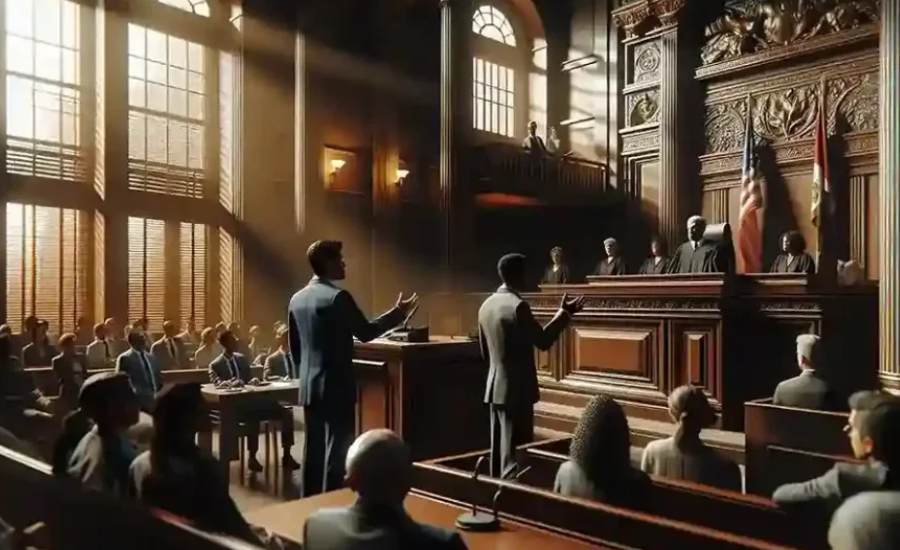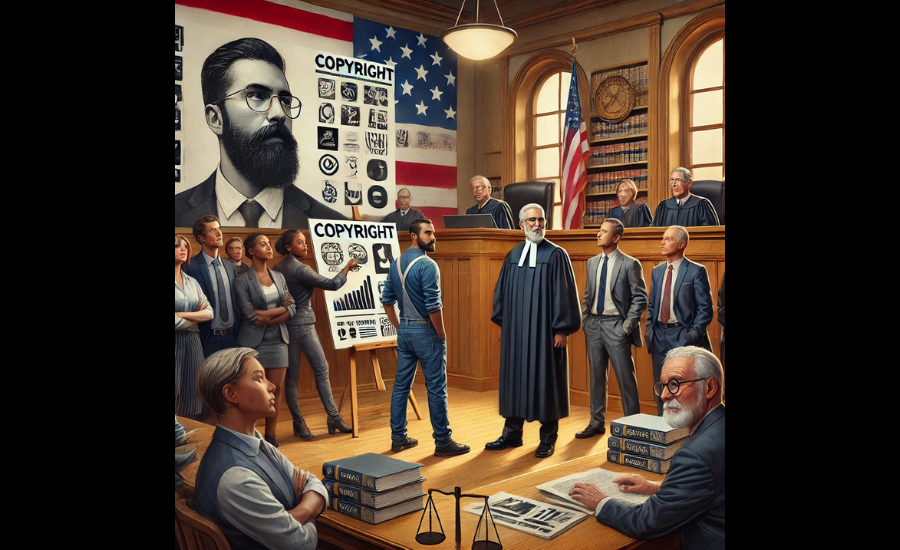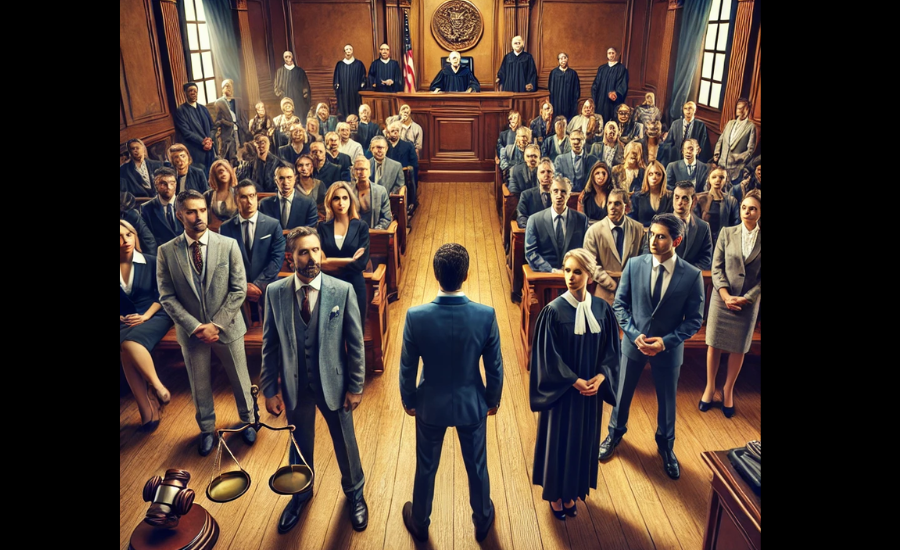Albert Huckster v Elgard Case Brief: 3 Profound Effects on Trademark Infringement Standards
Albert huckster v elgard case brief The Albert Huckster v Elgard case is a pivotal moment in legal history, influencing both contractual law and business practices. This landmark case addresses critical issues surrounding the interpretation of ambiguous terms in contracts and the enforcement of contractual obligations. Its significance lies in how it shaped the courts’ approach to similar disputes, leading to more stringent practices in drafting and enforcing contracts across industries.
In this article, we will explore the background of the case, key facts, and the legal challenges it presented. The analysis will also examine the court’s reasoning behind the final verdict and discuss its lasting effects on both businesses and legal professionals. By the end, readers will have a thorough understanding of the Albert Huckster v Elgard case and its ongoing importance in contract law.
Albert Huckster v elgard case brief: A Complex Contract Dispute

albert huckster v elgard case brief case arose from a prolonged legal conflict that garnered significant attention for its impact on both contract law and business practices. This case, centered around a contractual dispute, involved Albert Huckster as the plaintiff and the Elgard Corporation as the defendant. Elgard, a manufacturer of industrial equipment, became embroiled in this legal battle when Huckster, a former employee, filed a series of complaints following his departure from the company.
The conflict originated in 2014 when Huckster resigned under contentious circumstances, setting off a chain of legal actions. Between late 2014 and 2015, Huckster’s legal team filed numerous complaints against Elgard, raising various tort claims related to his employment and departure.
In 2016, Huckster, along with other former employees, escalated the dispute by filing a mass action lawsuit. This comprehensive lawsuit expanded on the previous claims, encompassing a wide range of tort issues and citing multiple statutes. The complaint was extensive, with over 200 pages and several causes of action, illustrating the complexity and high stakes involved in the case.
Albert huckster v elgard case brief: A Key Case in Employment Law and Contract Interpretation
The Albert Huckster v Elgard case emerged during a time of evolving legal interpretations of employment agreements and contract law. Central to this case were several important legal issues, primarily regarding how employment agreements are interpreted and the scope of corporate liability in such disputes.
A critical aspect of the case involved the classification of workers—whether they were employees or independent contractors. This distinction is pivotal in many industries as it directly influences workers’ rights and companies’ obligations. The Huckster case brought attention to the ongoing debate over this classification and its broader impact on employment law.
Another significant issue was the handling of pleadings and discovery in complex civil cases. Disputes over the sufficiency of the pleadings and the scope of discovery led to multiple procedural motions, highlighting the importance of following procedural standards in litigation.
The case also faced challenges related to jurisdiction, as complaints were filed across multiple courts, leading to questions about proper venue and jurisdiction. These procedural hurdles had to be cleared before the case could move forward to address its substantive legal matters.
As the case unfolded, it set key precedents on how courts interpret employment contracts and resolve disputes involving corporate liability. Today, Albert Huckster v Elgard remains a frequently cited case, providing critical guidance for legal professionals dealing with similar issues in employment and contract law.
Albert huckster v elgard case brief: A Complex Contract Dispute
The Albert Huckster v Elgard case revolves around a multifaceted legal conflict between Albert Huckster and Elgard Corporation, a case that has drawn significant attention due to its implications for contract law and business practices.
Plaintiff’s Allegations
Albert Huckster, the plaintiff, initiated several complaints against Elgard Corporation across multiple jurisdictions, centered on various tort claims related to his employment and departure. In 2016, Huckster, along with former Elgard employees, escalated the conflict by filing a mass action lawsuit. This detailed complaint spanned 214 pages, with 667 paragraphs, and included seventeen causes of action on behalf of the plaintiffs.
Among the key claims were accusations of unfair competition and trademark infringement. Huckster alleged that Elgard had violated trademarks he owned, including names such as World Wrestling Association (WWA) and Superstar Wrestling. The lawsuit included claims under 15 U.S.C. § 1125(a) for unfair competition, as well as common law claims related to false designation of origin and misappropriation of his advertising strategies.
Defendant’s Response
Elgard Corporation contested Huckster’s allegations with a series of counterarguments. The company pointed out that Huckster’s wrestling-related ventures had not been financially successful since 1979, questioning the validity of his claims. Elgard also referred to a prior settlement, the Consent Order, which prohibited the company from using certain names in their wrestling business. They argued that they had already complied with legal obligations.
The defense further challenged the sufficiency of Huckster’s complaint, asserting that the complexity and volume of the claims did not necessarily equate to legal merit. They also questioned the extensive discovery process, arguing that it failed to substantiate the plaintiff’s allegations.
Key Legal Issues
The case brings to light critical legal questions, including how employment agreements should be interpreted, particularly in determining whether workers are classified as employees or independent contractors. This classification is crucial, impacting both corporate responsibilities and workers’ rights across industries.
Additionally, the case raises issues regarding the interpretation of ambiguous contract terms. Disputes stemming from unclear language in agreements often lead to prolonged litigation, and the outcome of this case offers valuable insights into how courts may approach similar issues in the future.
Trademark Dispute in the Albert huckster v elgard case brief: Wrestling Industry Impact

The Albert Huckster v Elgard case involved an intricate battle over trademark rights within the wrestling entertainment industry. Both sides presented extensive evidence to support their claims, with the outcome having major implications for trademark law in this sector.
Huckster’s Claims on Trademark Use
Albert Huckster made a strong case for his longstanding use of trademarks such as “World Wrestling Association” and “WWA.” He presented a comprehensive list of 40 wrestling events he promoted between 1978 and 2003 under these names, aiming to show the deep association between his brand and the wrestling industry. Huckster argued that these trademarks were central to his business identity and helped establish his presence in the market over the years.
Elgard’s Defense and Trademark Agreements
In response, Elgard Corporation introduced key documents to challenge Huckster’s claims. One of the most significant pieces of evidence was a 1994 agreement, which followed earlier discussions from 1989 involving Titan (the predecessor to WWE) and the World Wildlife Fund. These documents detailed the negotiations around the use of specific trademarks in the wrestling industry, aiming to demonstrate how Elgard’s use of certain marks was lawful.
Trademark Registration and Cancellation Disputes
The case also explored the complexities of trademark registration and cancellation. A notable example was the application for the trademark “WWF Superstars,” submitted by Titan for entertainment services, which was later canceled by Lynne G. Beresford, Deputy Commissioner for Trademark Examination Policy. This added another layer to the debate over the validity of trademarks in the wrestling business.
Market Perception and Consumer Confusion
Both sides acknowledged the unique nature of the wrestling entertainment market, particularly its knowledgeable fanbase. WWE (formerly WWF) argued that wrestling fans are highly brand loyal, and the use of similar trademarks could easily confuse consumers. This argument underscored the importance of clarity in trademark rights to avoid misleading fans and maintain brand integrity.
This case highlighted the complexities of trademark law in the entertainment industry and underscored the challenges of protecting intellectual property in a highly competitive market.
Court’s Ruling in Albert Huckster v Elgard: Precedents in Trademark Disputes
In reaching its decision in the Albert Huckster v Elgard case, the court relied heavily on prior legal precedents, including a significant 1994 agreement between Titan Sports (the predecessor to WWE) and the World Wildlife Fund. This agreement, along with an earlier 1989 letter, played a pivotal role in shaping the framework for resolving trademark disputes in the wrestling industry.
The court also considered a 1993 Consent Order from the U.S. District Court, which placed restrictions on WWE’s use of certain names related to wrestling events. These precedents helped guide the court’s decision on Huckster’s claims regarding trademark usage and unfair competition in wrestling entertainment, allowing for a more informed and balanced ruling based on established legal principles.
By referencing these past rulings, the court built upon previous judgments to deliver a verdict that addressed the complexities of intellectual property and competition in the industry.
Court’s Detailed Analysis and Rulings in the Albert Huckster v Elgard Case
In its review of the Albert Huckster v Elgard case, the court undertook a thorough examination of the evidence provided by both sides. Huckster presented his long-standing use of trademarks like “World Wrestling Association” (WWA) in wrestling promotions as central to his claims. Conversely, Elgard Corporation relied heavily on past agreements, including the pivotal 1994 settlement with WWE’s predecessor, to argue its case.
The court addressed several crucial issues in its ruling. First, it explored the interpretation of ambiguous terms in employment agreements, emphasizing how such interpretations could have lasting legal consequences. Second, the court examined Huckster’s role within the wrestling promotion, determining whether he was an employee or an independent contractor, a decision that bore significant implications for corporate liability and worker protections.
Additionally, the court analyzed whether Huckster’s claims held sufficient legal merit, particularly in relation to motions for summary judgment. The verdict concluded that while some claims warranted further examination in a full trial, others could be dismissed based on the evidence and pleadings submitted.
Impact and Legal Significance of the Albert Huckster v Elgard Case

The Albert Huckster v Elgard case has become a pivotal reference point for legal professionals, particularly in sectors like entertainment, where issues of employment status and trademark rights frequently arise. One of the case’s key contributions is the court’s interpretation of claims under 15 U.S.C. § 1125(a), which addresses unfair competition and trademark infringement. This ruling establishes a new precedent for how courts may handle similar legal disputes in the future.
Additionally, the case emphasizes the need for clear and precise contractual language. By shedding light on how courts interpret agreements with ambiguous terms, it provides valuable guidance for businesses aiming to avoid litigation through more carefully constructed contracts.
The case also underscores the importance of accurately classifying workers, especially in industries that rely on independent contractors, such as entertainment. The court’s rulings offer businesses insight into balancing their interests with the legal rights of their workers, ensuring compliance with evolving employment laws.
Key Legal Framework and Contractual Examination in the Albert Huckster v Elgard Case
The Albert Huckster v Elgard case centered on various significant legal statutes, most notably 15 U.S.C. § 1125(a), which addresses unfair competition and false designation of origin. Huckster’s claims of trademark infringement were largely rooted in this statute. Additionally, Wisconsin’s state-level trademark laws, specifically Wis. Stat. § 132.01 et seq., played a crucial role in the court’s analysis, guiding the assessment of state-specific trademark protections.
Trademark law was a focal point in the case, especially concerning the registration and use of marks in the same industry. The involvement of the Trademark Trial and Appeal Board (TTAB) highlighted the complexities surrounding potential consumer confusion when competing trademarks exist within similar sectors, like wrestling entertainment. This underscored the broader implications for trademark registration and the need for clarity to avoid misleading consumers.
Focus on Contractual Interpretation and Breach of Agreement
In addition to trademark law, the court meticulously examined contract law as it applied to the case’s facts. Several aspects were critical to the court’s decision-making:
- Contract Interpretation: The court analyzed how specific contract clauses should be interpreted in relation to the alleged breach of agreement.
- Evidence of Breach: Technical analysis, witness testimonies, and digital evidence were used to assess whether sufficient proof supported the breach claims.
- Legal Precedents: The court referenced prior rulings in similar intellectual property and contract disputes, using them to shape the legal framework for this case.
These combined legal perspectives allowed the court to render a more informed and balanced decision, ensuring both the integrity of contract interpretation and the protection of intellectual property rights within the entertainment industry.
Court Ruling in Favor of Huckster: Implications for Contractual Integrity and Intellectual Property
In the Albert Huckster v Elgard case, the court ruled in favor of Huckster, finding Elgard liable for breach of contract and unfair competition. As part of the verdict, the court ordered Elgard to pay substantial damages to Huckster, while also placing restrictions on the company’s future use of the disputed technology.
- Reaffirming the Importance of Contractual Obligations: The court’s ruling emphasized the necessity of honoring contractual agreements, particularly in business relationships. Companies must ensure that all terms are clearly defined and respected to avoid legal conflicts.
- Clarifying Intellectual Property Rights: The verdict also highlighted the importance of clearly delineated intellectual property rights in collaborative business ventures. Misunderstandings or ambiguities in these areas can lead to significant legal disputes, as demonstrated in this case.
This ruling serves as a reminder to businesses to carefully draft and adhere to agreements, particularly when dealing with intellectual property and shared technologies, to avoid similar legal consequences.
Albert Huckster v. Elgard: A Landmark Case in Intellectual Property and Contract Law
The Albert Huckster v. Elgard case has set a significant precedent in intellectual property law and contract enforcement, serving as a crucial reference point for multiple sectors. Its impact extends to:
- Legal Professionals: The case offers valuable insights for attorneys handling similar disputes involving intellectual property and contractual obligations, providing a guide for navigating complex legal issues.
- Corporations: This ruling encourages businesses to refine their practices in drafting contracts and managing intellectual property rights, reducing the risk of future litigation.
- Legislators and Policymakers: The case also serves as a model for those involved in shaping and updating laws related to corporate conduct and intellectual property, offering lessons on how current legal frameworks can be improved.
This case underscores the importance of clear contractual terms and robust intellectual property protection in today’s business environment.
Final Words
The Albert Huckster v Elgard case remains a defining moment in legal history, shaping how courts handle ambiguous contractual obligations and intellectual property disputes. Its influence stretches across industries, particularly in sectors like entertainment, where clear contractual language and well-defined intellectual property rights are crucial. Legal professionals and businesses alike continue to draw from this landmark decision to refine their contractual practices and reduce the potential for costly litigation.
Ultimately, Albert Huckster v Elgard highlights the need for diligence in drafting and interpreting contracts. It underscores the importance of understanding the broader implications of legal disputes that hinge on employment classifications and intellectual property protections. This case will continue to serve as a valuable legal precedent for years to come, reinforcing the core principles of contract law and intellectual property rights.
Stay in the loop for upcoming updates and alerts! Washington Breeze






